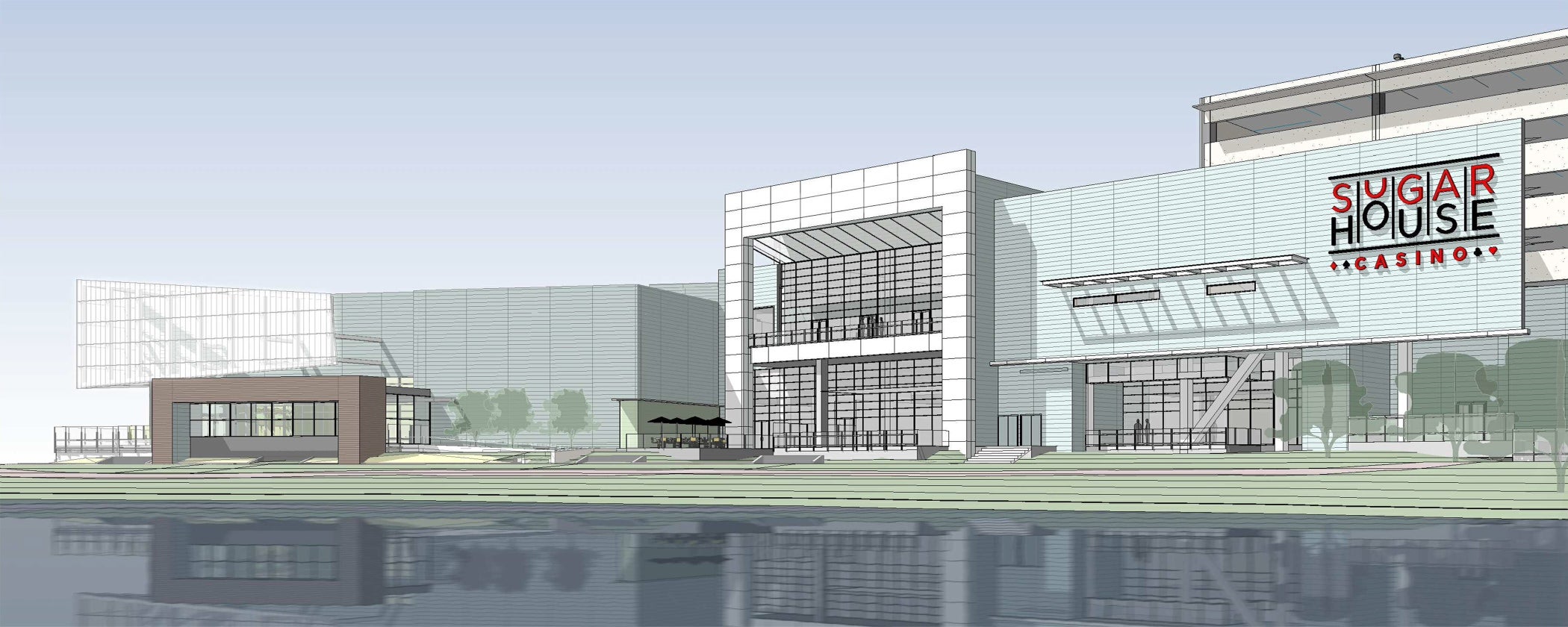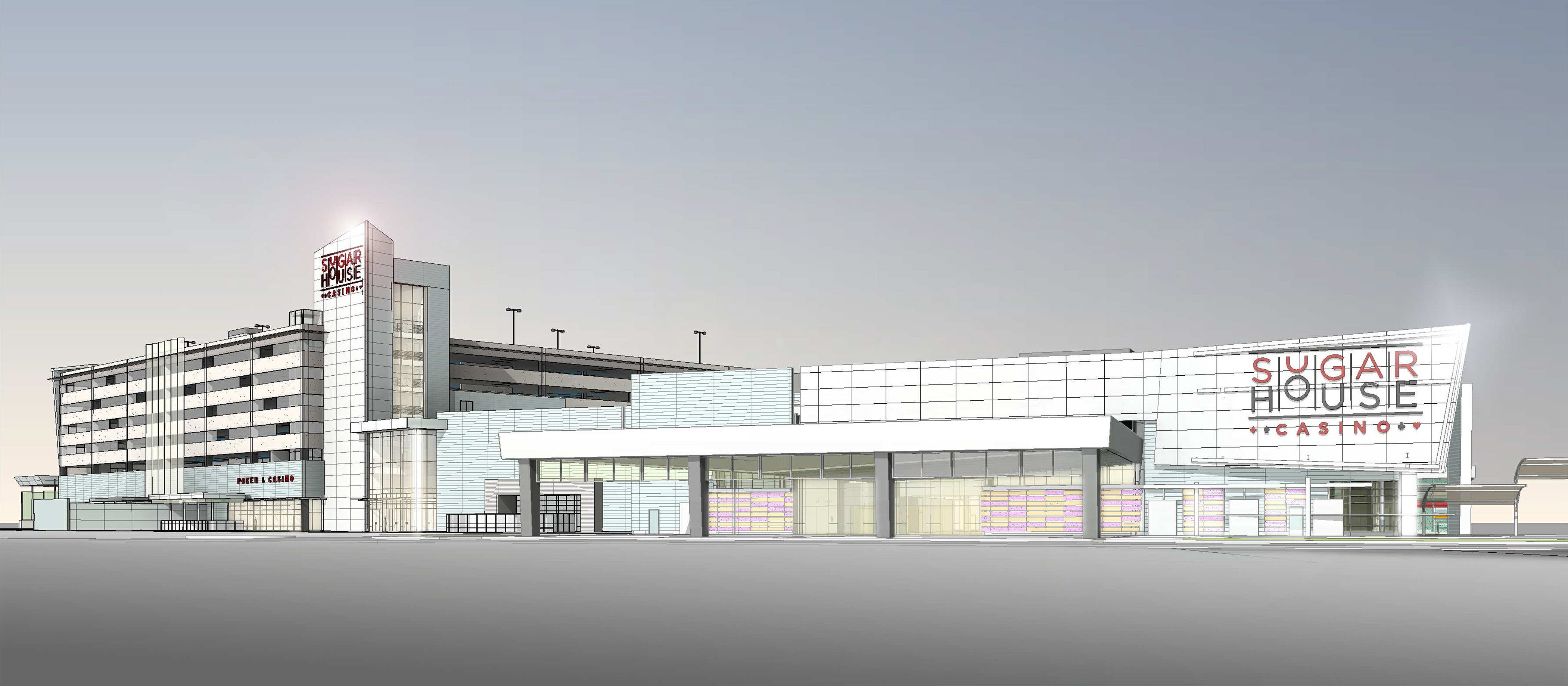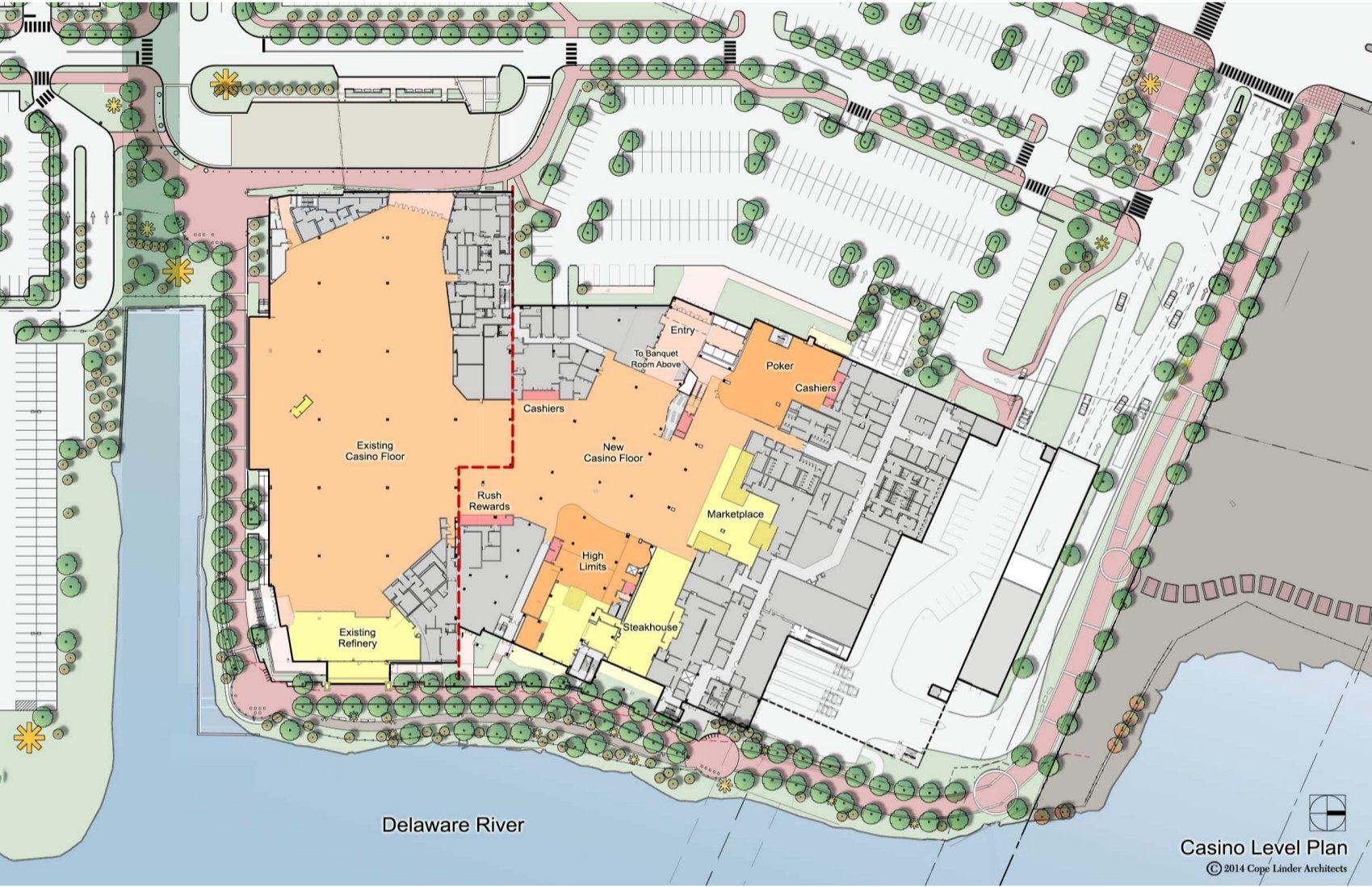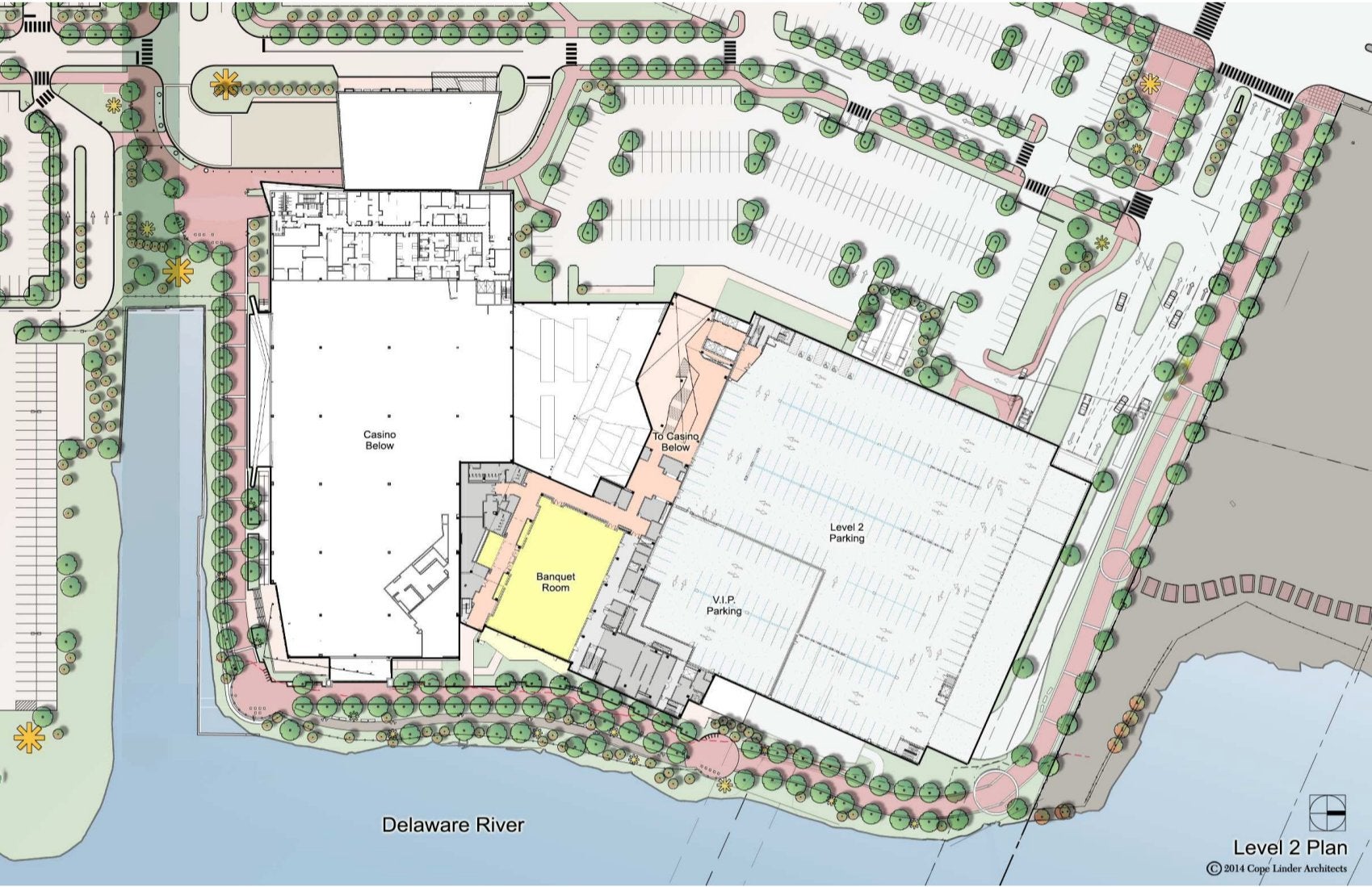SugarHouse begins $164 million expansion, will open interim poker room this fall

The Pennsylvania Gaming Control Board hasn’t picked a winner for the city’s second casino license. SugarHouse would prefer the PGCB fold.
SugarHouse Casino launched work on its $164 million expansion project Tuesday morning.
The casino is adding a multi-purpose event space with waterfront views, new restaurants, a parking garage, and a 30-table poker room. The new space will be added to the north side of the 1001 N. Delaware Ave. casino. The gaming floor will increase from about 50,000 square feet to 85,000 square feet. In addition to the poker tables, 30 additional table games and 400 additional slots will be added.
The permanent poker room will open with the rest of the addition in 2015. But this fall, SugarHouse will open an interim, 24-table poker room “to meet Philly’s high demand for poker,” a company statement says. The $2.9 million interim poker room is being built on the south side of the property facing the Ben Franklin Bridge so as not to interfere with work on the permanent expansion to the north. It will have food and beverage service and feature state-of-the-art tables that will move to the permanent space next year.
“We are thrilled to be one step closer to the bigger and better SugarHouse Casino,” Wendy Hamilton, general manager of SugarHouse Casino, said in a printed statement. “Our guests and team have been waiting for this moment, and we’re excited to say that it’s finally here. Groundbreaking is a huge milestone for us.”
SugarHouse says the full expansion will create 1,600 construction jobs, and once complete, will add 500 new full- and part-time jobs to the current 1,100-person SugarHouse staff.
The interim poker room will create 100 new jobs, 80 of which will be poker dealers. SugarHouse says it will recruit a mix of experienced and newly trained dealers to fill these spots and will offer a poker dealer school to train current employees and other applicants. The school will be free for people who live within the Penn Treaty Special Services District, a special district set up within the neighborhoods around the casino to accept community contributions from the casino. (School applications are being accepted, and class will likely start in late August.)
Since opening, SugarHouse has generated more than $445 million in state and local taxes and contributed more than $5 million to local groups and organizations, including by sponsoring Penn’s Landing fireworks and the Mummers Parade. Once the facility is complete, SugarHouse has pledged to contribute $1 million to the Penn Treaty Special Services District annually. Penn Treaty Special Services’ board decides how to use that money on projects in Fishtown and surrounding neighborhoods.
This stage of development does not include other amenities SugarHouse has talked about, including a hotel. The owners “also may contemplate” that addition and others, depending on future market demand, a statement reads.
Those who pass by the site may have noticed other work being done – a whole lot of digging. SugarHouse is completing a $12.5 million upgrade of the Laurel Street Combined Sewer Outfall, more than doubling capacity of the more than 100-year old sewer which has created chronic flooding in Fishtown and Northern Liberties.
The design of the SugarHouse Casino expansion is by Philadelphia-based Cope Linder Architects. Construction management is by Skanska USA Building, Inc. and development management by Philadelphia-based Keating Consulting, LLC.
Despite the state’s original plans, SugarHouse remains the only casino within the city limits. The legislature approved two casino licenses for the city, and Foxwoods had and lost the other one. The Pennsylvania Gaming Control Board had been expected to re-award that license to a second operator late last year, then early next year. As of today, no decision has been reached.
SugarHouse execs joined anti-gambling activists in asking the PGCB to not award that second license. The anti-gambling activists believe the tax revenues and jobs casinos generate are not worth human costs, such as gambling addiction. SugarHouse believes the regional market is already saturated and adding a new casino will not generate new revenue, but cannibalize revenue from SugarHouse and other existing casinos.
Since the gaming board has been weighing its decision, several Atlantic City casinos have either closed or announced their intention to close.
WHYY is your source for fact-based, in-depth journalism and information. As a nonprofit organization, we rely on financial support from readers like you. Please give today.







